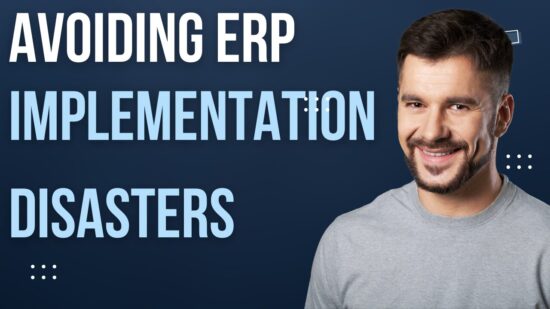BACS Consulting Group Presents: Mastering ERP System Administration
Businesses need more than just robust tools to streamline their operations. They require a unique blend of technique and technology to stay ahead. Enterprise Resource Planning (ERP) software, a multifaceted suite of integrated business applications, is at the forefront of this revolution. But understanding the intricate world of ERP System Administration is crucial for optimal performance.
Understanding ERP System Administration: More Than Just Management
Located in the dynamic landscape of the San Francisco Bay Area, BACS Consulting Group has discerned that ERP isn’t merely a software solution. It’s a management methodology in its own right. Thus, ERP System Administration transcends the realms of technical and operational support to offer comprehensive business process aid to corporations.
The Indispensable Role of System Administration
Contrary to the prevalent belief, system administration isn’t merely a business function. Instead, it’s a pivotal role that manages a business’s instrumental tools. Drawing a parallel, think of an ERP administrator as a seasoned mechanic. An ERP administrator nurtures the system just as the mechanic attends to a car’s myriad needs, from patching up minor dents to overhauling critical components. They apply fixes, introduce enhancements, and reinforce the foundational technical structure upon which the ERP thrives.
The Multifaceted Duties of ERP Administrators
The role of an ERP administrator is as diverse as it is dynamic. At BACS Consulting Group, we’ve identified the multifarious responsibilities they shoulder:
- Diagnosing and rectifying system glitches
- Providing frontline help desk support
- Overseeing stringent security protocols
- Orchestrating database backup regimes
- Communicating and coordinating system maintenance timelines
- Seamlessly managing interfaces within and outside the ERP system
- Spearheading system upgrades
- Catering to evolving training requisites
Key Skills for an Efficient ERP Administrator
Specific skill sets are non-negotiable for those aspiring to excel as an ERP administrator. Technical proficiency regarding the system’s architecture and its underlying infrastructure is paramount. A holistic comprehension of the system’s diverse applications and modules and their intricate interplay is equally vital. Bridging the gap between functional process owners and hardcore tech professionals, like database managers and network experts, an ERP administrator often plays the pivotal role of mediator.
System Optimization: A Continuous Endeavor
Draw inspiration from an engineer meticulously overseeing factory machinery. An ERP administrator vigilantly monitors:
- The overall system performance
- The frequency and nature of help calls
- The evolving requirements of the functional users
Such constant monitoring ensures timely interventions, whether oiling the system’s metaphorical gears or fine-tuning its processes for optimal outcomes.
The Gatekeeper of System Integrity
The temptation to tinker with the foundational code is omnipresent in a world driven by codes and algorithms. However, any such alterations aren’t arbitrary. Programmers must adhere to stringent protocols managed by the system administrator. This gatekeeper role is indispensable for preserving the integrity of the system, its controls, and its invaluable data.
Conclusion
In the rapidly evolving world of digital transformation, ERP System Administration emerges as a linchpin, ensuring that businesses don’t just operate but thrive. With technical prowess, a deep understanding of business processes, and a commitment to system integrity, ERP administrators are the unsung heroes of the modern corporate landscape. And as businesses navigate the digital maze, partners like BACS Consulting Group remain committed to shedding light on such pivotal roles and driving businesses toward excellence.






